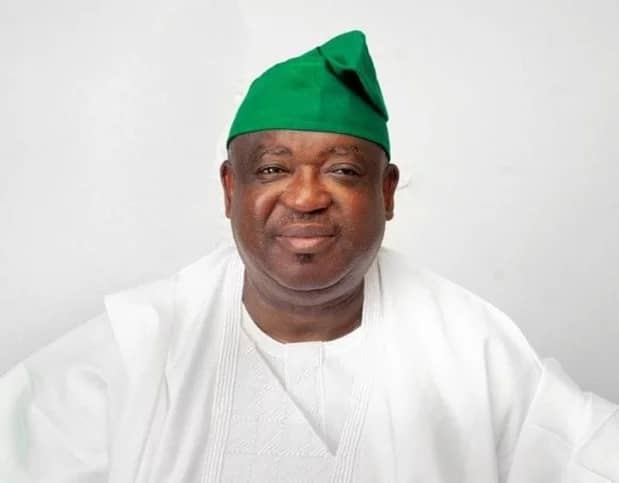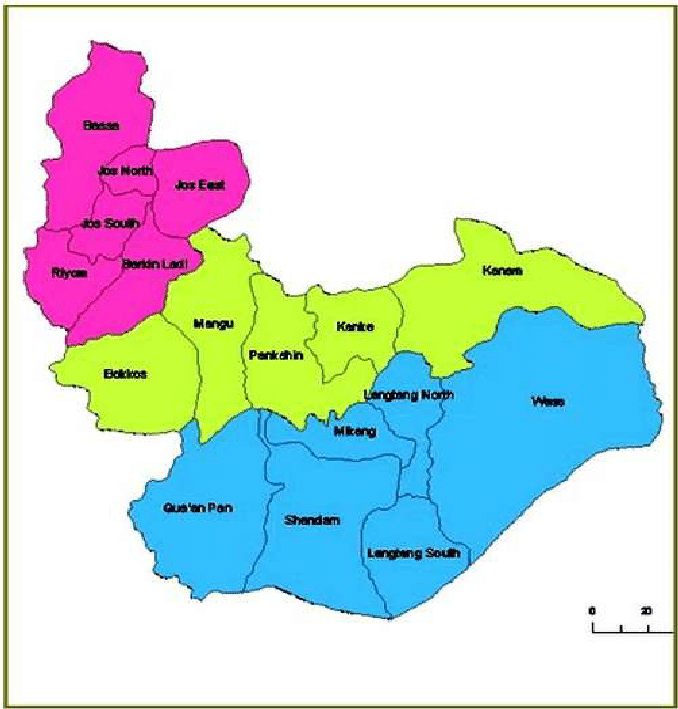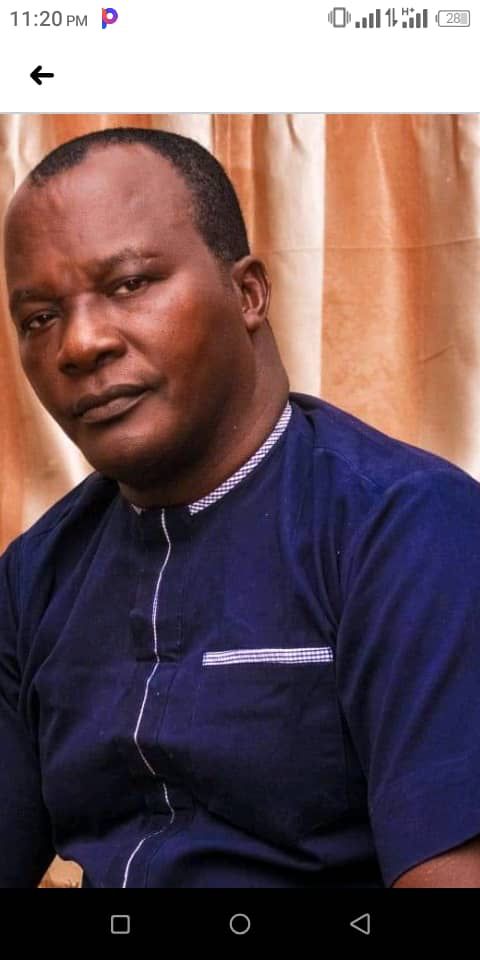By
Professor (Asso.) Elias Nankap Lamle
Centre for Conflict Management and Peace Studies
University of Jos

In Islamic culture, green is regarded as a symbol of paradise, while in Christian cultures, it symbolizes life and eternity. In color theory, green is considered a balanced and harmonious color, representing fertility, the life cycle, nature, growth, environmental health, and wellness. Additionally, green is often linked to wealth and prosperity, akin to the symbolism associated with the dollar. The color green holds significance even in political leadership under the guidance of Governor Caleb Mutfwang. Herein lies an interpretation of the Green Renaissance resonating in the new Plateau State.
In politics, success seldom occurs by chance but results from a combination of strategy, foresight, and the guidance of political mentors. The recent rerun election in Plateau State’s northern senatorial district is not a stroke of luck but a testament to the profound impact of effective political mentoring.
At the start of Governor Caleb Mutfwang’s campaign against Nentawe of the APC, I uttered a prophetic message on my Facebook social media platform. I emphasized the timeless advice to scrutinize a candidate’s credibility by examining their mentors. An observant eye I discerned that Barrister Caleb Mutfwang’s political journey was under the guidance of a mentor with substantial political credibility.
The subsequent landslide victory in the rerun election is a resounding confirmation of the wisdom in that initial assertion. It transcends the ephemeral realm of chance, being a triumph born out of God’s grace and meticulous, long-term political planning.
Governor Caleb Mutfwang’s leadership has manifested not only in the ballot box but also in tangible developmental strides. Amid the clamor and political rascality that often shadows Plateau State’s progress, Mutfwang has stood tall, steering the ship of development with resilience and dedication. This impact in the face of adversity further underscores the significance of mentors who impart not only political wisdom but also a steadfast spirit in the face of challenges.
The narrative of Plateau State’s political resurgence extends beyond Governor Mutfwang’s efforts. It is a collective endeavor, a synergy of visionaries reshaping the political landscape not just within the state but on the broader canvas of the Nigerian nation.
Former Governor David Jang, alongside Governor Caleb Mutfwang and others, has become a driving force, trailblazing through the intricacies of Plateau State’s political sphere. This collaboration symbolizes the power of unity, mentorship, and shared values in steering a state toward a promising future.

The rerun victory in the Plateau State northern senatorial election weaves a narrative with threads of divine grace and foresight acquired through long-term political planning. It is a beacon of hope for those who believe in the transformative potential of mentorship in politics.
As Plateau State etches its success story, it prompts reflection on the broader political landscape. It urges consideration of the vital role mentorship plays in nurturing leaders adept at both winning elections and navigating governance challenges.
In a political climate often clouded by opportunism and short-sightedness, Plateau State stands as a paradigm. It beckons aspiring leaders and political enthusiasts to acknowledge the intricate tapestry of success—where luck is a bystander, and the true architects are mentors who provide the scaffolding for political greatness to flourish.
In the tumultuous realm of Nigerian politics, Plateau State has emerged as a beacon, showcasing a new wave of political processes guided by the principles of proper political mentoring. The recent victory in the Plateau State northern senatorial election rerun has not only secured triumph for specific candidates but has also elevated the state to a symbol of effective mentorship in political leadership.
One glaring issue in Nigerian politics has been the myopic focus of many politicians on personal gain, particularly upon ascending to power. The common narrative involves leaders seeking to fill their pockets rather than investing time and effort in identifying and mentoring individuals who could potentially carry forward the torch of effective governance. This shortsightedness, in large part, stems from a lack of mentorship in their own political journeys.
The case of former Governor Jonah David Jang, Governor Caleb Mutfwang, Senator Mwadkong, and others, stands out as a remarkable departure from this trend. Jang, a political luminary, recognized the importance of mentorship and empowerment in fostering capable leaders. His commitment to guiding and uplifting individuals within the state has not only shaped the political landscape but has also created a cadre of leaders who, when he speaks, listen attentively.
The recent electoral success in Plateau State is a resounding testament to the transformative power of mentorship. To bring forth a candidate and witness them secure victory within just two days is an extraordinary achievement, especially in a community characterized by deep-seated political animosities. This accomplishment reflects the meticulous planning, strategic mentorship, and cohesive vision orchestrated by political leaders like former Governor Jang, Governor Caleb Mutfwang, Senator Mwadkong, and others.
In Plateau State, the mentorship culture has not only ensured electoral victories but has also cemented the relevance of political leaders even when they are not in power. The enduring influence of mentors like Jang extends beyond the confines of an election cycle, creating a legacy that resonates through the political fabric of the state.
As Nigeria looks towards Plateau State, it sees not just a political triumph but a model for a more sustainable and impactful political process-one driven by mentorship, empowerment, and a commitment to nurturing the next generation of leaders. The state’s success challenges the prevalent notion that political relevance is synonymous with being in power. Instead, it underscores the enduring influence that effective mentorship can wield, shaping the trajectory of a region long after the political winds have shifted.
The political landscape of Plateau State serves as a clarion call to politicians across Nigeria. It beckons them to reevaluate their priorities, emphasizing the significance of mentorship as a catalyst for enduring political impact. In the echoing success of Plateau State, there lies a lesson for Nigerian politics: that true leadership extends beyond personal gain and towards the mentorship and empowerment of others.
In the annals of political history, there are instances where a single act becomes a revolutionary catalyst, reshaping the landscape and defying conventional expectations. Former Governor David Jang, Governor Caleb Mutfwang, Senator Mwadkong, and others, of Plateau State stand as a potent exemplar of such transformative leadership. Their recent foray into politics, particularly the Plateau State northern senatorial election rerun, serves as a paradigm-shifting moment-a testament to the profound impact a visionary leader can wield in a short span.
The political terrain in Plateau State has, at times, been marred by schemes to short-change the people of their duly elected political representatives. In this landscape, disgruntled political gerrymanders have sought to undermine the democratic process, threatening the very core of representative governance. It is within this challenging milieu that Former Governor David Jang, Governor Caleb Mutfwang, Senator Mwadkong, and others, assumed the role of a trailblazer, steering the state towards a political revolution.
A strategic revelation unfolded just a day before the election revelation of how some elements intended to manipulate and subvert the will of the Plateau people. In response, Former Governor Jang, flanked by his adept lieutenants including Governor Caleb Mutfwang, Senator Mwadkong, and others, rallied behind a set of candidates who, until that moment, were virtually unknown in the intricate web of Plateau State politics.
These candidates, handpicked by former Governor Jang, Governor Caleb Mutfwang, Senator Mwadkong, and others, and his team, were not seasoned veterans of the political arena. They were novices, political unknowns thrust into the spotlight in the eleventh hour. Yet, under the guidance and support of Jang and his able lieutenants, they underwent a rapid metamorphosis—from novices to political gladiators, riding on the metaphorical eagle wings of experienced mentors.
The speed at which these candidates transitioned from obscurity to political prominence is nothing short of remarkable. It exemplifies the potency of strategic mentorship and collaborative leadership. Former Governor Jang’s, Governor Caleb Mutfwang, Senator Mwadkong, and others, acts of standing firmly behind these candidates just before the election showcased not only their astuteness but also a commitment to nurturing a new breed of leaders capable of navigating the intricate dynamics of Plateau State and Nigerian political alchemy.









